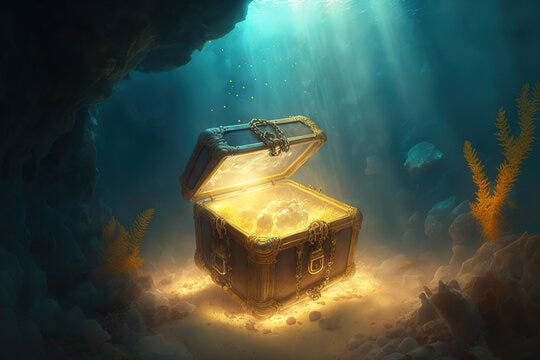OceanGate CEO wanted to help companies mine oil, gas, and "treasure" on ocean floor
The former CEO spoke about "trillions" in minerals on the ocean floor
If you were wondering why the wealthy were so interested in the sea floor, turns out it has less to do with science and exploration and more to do with mining and profit.
As reported by Insider, the now deflated CEO of OceanGate, Stockton Rush, was aiming to prove his company's worth as a prelude for pitching partnerships with oil and mining companies:
Stockton Rush, the CEO of the company that ran the now-imploded Titanic submersible, said in 2017 that he aimed for the vessel to eventually help him obtain contracts with companies mining oil and gas from the ocean.
[…]
Rush, the grandson of oil and gas magnate Ralph Davies, was interested in oil and gas reserves, diamonds, and rare earth minerals in the deep ocean, FastCompany reported.
"There's all these resources to be explored, and I couldn't understand why there aren't any manned subs," he told the outlet. "Turns out one of the reasons was that people had not looked at the business aspect of operating a manned sub, because operations were funded by governments through universities for research. Nobody thought about cost, nobody thought about revenue."
More recently, in a late 2022 interview, Stockton spoke about “trillions” of dollars in oil, gas, and “treasure” on the ocean floor:
Estimates range from 8 to 16 trillion dollars worth of minerals on the ocean floor, but scientists have warned against such operations, claiming they will destroy ecosystems.
What remains of Stockton Rush is now feeding those ecosystems, and hopefully the OceanGate disaster provides a lengthy setback for what will likely be another environmental disaster for our already struggling oceans.



